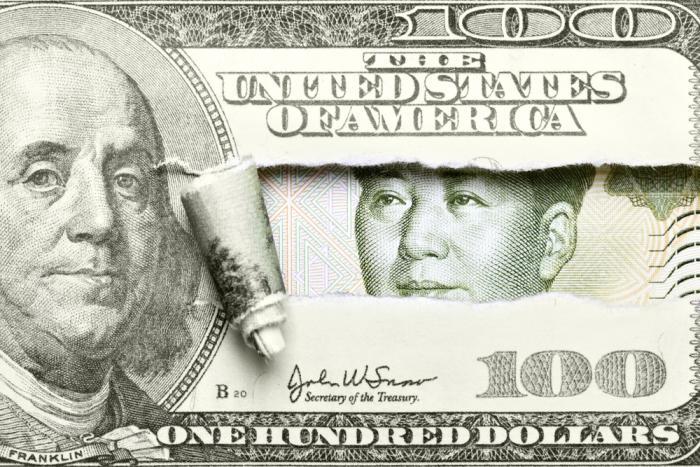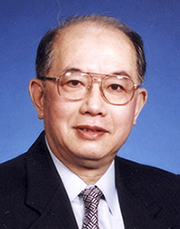《Political Rhetoric Aside, a Prosperous China is in the U.S.'s Best Interest》是《Economy Watch》2015年4月20日推出的一篇由著名外交家厲聲教撰寫的英文專欄文章。
基本介紹
- 外文名:Political Rhetoric Aside, a Prosperous China is in the U.S.'s Best Interest
- 作品出處:《Economy Watch》
- 作者:厲聲教
作品原文,創作背景,作者簡介,
作品原文
The ‘China threat theory’ is once again in vogue, as US President Barack Obama pushes to overcome domestic resistance to the Trans-Pacific Partnership (TPP).
US media outlets have described the establishment of the China-led Asian Infrastructure Investment Bank (AIIB) and China's New Silk Road initiative as major threats to US dominance in Asia. They have also depicted the Free Trade Area of the Asia Pacific (FTAAP) as a China-led initiative. US media outlets have labeled it as a rival to the US-sponsored TPP, a key component of President Obama's 'pivot' toward Asia.
Obama, who is pushing to overcome resistance to the TPP from within his own party as well as from the Republicans, has spoken publicly about China on multiple occasions. He has overstated China's economic threat to the US and has put the world's two largest economies on a collision course.
"China wants to write the rules for the world's fastest-growing region. That would put our workers and businesses at a disadvantage. Why would we let that happen? We should write those rules", said Obama in his State of the Union address. In doing so, Obama stressed that the TPP is about the power rivalry between China and the US.
While the appearance of China–US competition in Asia does exist, much of the hype is overblown. Hyping China's economic threat to the US is merely a political gimmick to win domestic support for the TPP.
Opposing the AIIB is not a sensible option for the US.
The AIIB was established following longstanding criticism of existing US-dominated organisations such as the World Bank and the IMF. These Washington-based institutions offer only limited roles for emerging economies. Countries in Asia were highly dissatisfied with their treatment by the existing US-controlled institutions. The AIIB provides an option for emerging economies, and meets the needs of Asian economic development.
Rather than unwaveringly opposing the new China-led investment bank, it would be more sensible for the US to actively work with the AIIB to ensure strategic coherence, since doing so would increase the prospects that the AIIB would be an efficient supplement to existing institutions, rather than a substitute.
China's New Silk Road initiative is not designed to challenge US dominance in Asia.
The initiative is not a tool of geopolitics, and should not be viewed with that outdated Cold War mentality. It aims to improve connectivity and provide more public services for people in the region. It seeks wide consultation, joint contribution and shared benefits, and would promote regional prosperity as well as global economic recovery along the way. The alleged threat it poses to Washington's strategic rebalance toward Asia is hyperbolic.
Unlike the AIIB and New Silk Road, the FTAAP is not a Chinese initiative and the trade pact plan does not go against the US-sponsored TPP.
The proposed FTAAP is an Asia-Pacific Economic Cooperation (APEC) trade vision that includes all of its 21 Pacific Rim member economies. Ironically, the FTAAP concept was first developed by the Americans.
Further, the FTAAP is not necessarily a challenge to the TPP; the two trade arrangements could be compatible, even complementary. As APEC Executive Director Alan Bollard notes, the TPP could be a stepping stone to the all-inclusive FTAAP. He also pointed out that the FTAAP is not necessarily competing with the TPP. It is what happens afterwards that matters.
As the TPP negotiations are nearing completion, opposition has emerged from both Tea Party Republicans and rank-and-file Democrats. Tea Party lawmakers — with their long history of mistrust toward Obama — balked at the president's request for more power to fast-track the TPP deal through Congress. Resistance from the Democrats has proved broad and deep.
China's economic threat to the US is exaggerated. Playing up the 'China threat' at this juncture is merely a political trick employed by some smart US politicians to win domestic support for the TPP.
The China–US economic relationship is not a zero-sum game. China's prosperity does not come at the expense of the United States. Rather, the rise of a prosperous China is in America's and the world's best interests, as Obama himself put it.
China and the United States share extensive common interests and broad prospects for cooperation. A strengthened, cooperative economic relationship between the world's two largest economies will not only benefit the two highly complementary nations, but will also make dramatic contributions to the entire globe.
Citizens of both countries, and beyond, should take an objective view of the China–US economic ties, and make their own judgements.


